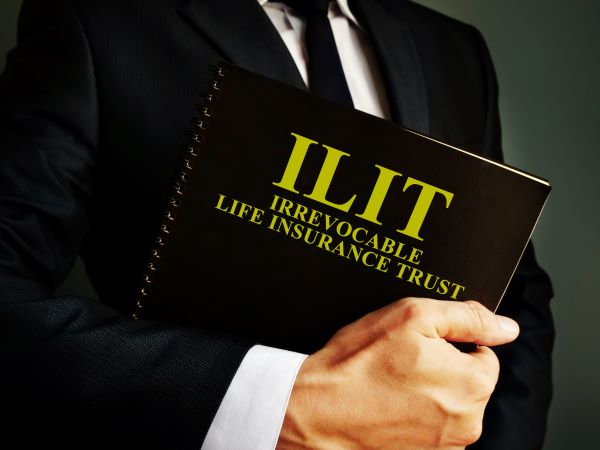A limited liability company gives you the best of both worlds. It blends the easy management of a partnership with the liability shield of a corporation, so you keep daily finances neat and personal risk low. That same mix turns a Family LLC into a smart piece of any estate plan.
With a Family LLC, you can move property, investments, or business interests to children and grandchildren at discounted values. Because an LLC blends the good bits of partnerships and corporations, it may trim gift and estate taxes through valuation discounts that the IRS recognizes. Lower taxes mean more of what you built stays in the family. Asset protection during your lifetime is a bonus.
If you’re considering including a Family LLC in your estate plan, The Law Office of Whitney L. Thompson, PLLC can help you handle this process with ease. Our experienced Houston estate planning attorney can guide you through the benefits, structure, and implementation of a Family LLC to protect your assets and ensure a seamless transition for future generations. Contact us today at (281) 214-0173 to discuss your options and secure your family’s financial future.
Why Do I Need a Family LLC?
Every state lets you set up a Family LLC. Each one has its own rules for formation, day-to-day operation, and taxes, but the basic idea is the same. When you own an LLC, your personal assets, such as your house, bank accounts, investments, and even the car in your driveway, stays off-limits if the business faces a lawsuit or debts. An LLC is subject to fewer state formalities and regulations than a corporation, so members can manage in nearly whatever manner they prefer.
A Family LLC also helps trim federal estate taxes. For the 2025 tax year, the exemption is $13.99 million per person. However, it is critical to understand that this high exemption is temporary. Under current law, it is scheduled to “sunset” on January 1, 2026, at which point the exemption will revert to its pre-2018 level of roughly $7 million per person, adjusted for inflation. This means that many more families will be subject to estate taxes, making strategies like the Family LLC relevant for a much broader range of estates.
While there is no legal reason you cannot create an LLC with fewer means, a trust may be a more cost-effective option as it will not require a Family LLC’s initial and annual fees and more intensive reporting procedures.
Establishing an LLC in conjunction with your children allows you to:
- Maintain control over your assets while alive
- Effectively reduce estate taxes due to your children upon inheritance
- Distribute inheritance to your children with less gift tax during your lifetime
Smart structure today means fewer headaches tomorrow and, more importantly, more of your hard-earned assets staying in the family.

Houston Estate Planning Attorney

Whitney L. Thompson
Whitney L. Thompson is a dedicated Houston estate planning attorney who brings a personal and compassionate approach to helping individuals and families navigate divorce, custody disputes, child support, guardianship, probate, and estate planning. As a first-generation woman entrepreneur, Whitney understands the emotional and logistical challenges people face when building a secure future.
With hands-on experience dating back to her time at Thurgood Marshall School of Law, Whitney’s legal career is rooted in advocacy and service. Drawing on practical knowledge of courtroom dynamics, she emphasizes proactive planning through services like drafting wills, establishing guardianships, and crafting prenuptial agreements. Whitney believes in empowering her clients with direct, honest guidance and simple, effective solutions to avoid costly legal battles down the road.
Family LLC vs. Trust
A Family LLC (limited liability company) and a trust are both tools used in estate planning, each serving unique purposes with distinct benefits. A Family LLC is a business structure often used to manage and control family-owned assets. It can help limit liability and provide flexibility in managing investments or real estate. Family members can be members or managers of the LLC, and it allows for strategic asset protection and tax benefits.
On the other hand, a trust is a legal arrangement where a trustee holds and manages assets on behalf of beneficiaries. Trusts are commonly used to bypass probate, maintain privacy, and safeguard assets from creditors. Trusts can be tailored to specific needs, such as providing for minors, ensuring long-term care for a loved one, or managing charitable donations. Unlike a Family LLC, a trust is not a business entity and does not involve business operations.
Choosing between a Family LLC and a trust depends on individual goals. If the primary aim is to manage family business assets and limit liability, a Family LLC may be more suitable. However, if the goal is to avoid probate and control how assets are distributed after death, a trust could be the better choice. Both options can complement each other in a comprehensive estate plan, depending on the family’s needs and objectives.
If you’re unsure whether a Family LLC or a trust is the right fit for your estate planning needs, the Houston estate planning attorneys at The Law Office of Whitney L. Thompson, PLLC can provide the guidance you need. We can help you understand the benefits of each option and tailor a plan that aligns with your goals to protect your assets and provide peace of mind for your family’s future. Contact us today to discuss your unique situation and start building a plan that works for you.
How is a Family LLC Structured?
A Family LLC is managed by the parents. The children or grandchildren hold shares in the LLC’s assets without management or voting rights. The parents can distribute, buy, sell, or trade the LLC’s assets but other members have restrictions regarding the sale of LLC shares, company withdrawal, or membership transfer. While gifting shares to younger members comes under the gift tax, significant benefits permit you to gift more while lowering the tax value of your estate.
Upon establishing a family LLC following your state’s legal process, you can transfer assets into the LLC. The management will decide how best to translate the market value of these assets into LLC units of value in much the same manner as stock in a corporation. You are now ready to transfer ownership of LLC units to your children or grandchildren as you desire.
The value of units transferred to non-managing members becomes discounted because the LLC units become less marketable without management rights, which is where tax benefits come into play. The manager of the LLC can often reduce the value of transferred units by as much as 30% to 40% of their market value. In essence, non-managing members may receive an inheritance advance at a lower gift tax cost. Additionally, the overall value of your estate is reduced, lowering the estate tax when you die.
Texas Family LLC Compliance Requirements
Keeping a Texas Family LLC in good standing means meeting a few recurring obligations. Every year, you must file the Franchise Tax Report and Public Information Report with the Texas Comptroller no later than May 15. Even if you owe nothing, you still need to file. Late filings incur a 5% penalty (10% after 30 days), plus interest, and risk forfeiture of privileges or involuntary termination. Extensions to November 15 are available if you submit a request or pay 90% of any tax owed by May 15.
Most Family LLCs fall under the current revenue limit, so you can file a simplified No Tax Due Report. If your receipts climb higher yet stay under the $20 million cap, the EZ Computation Report gives you a shorter calculation than the standard long form. Because these specific revenue thresholds can change, you should always verify the current figures with the Texas Comptroller.
Texas also requires you to keep a record book. Put your certificate of formation, company agreement, membership ledger, meeting minutes, and written consents inside. Keep the book at your main office in Texas. Someone may ask to look at those papers during normal business hours, so have them ready. Storing the files online works as long as you can print an accurate copy on demand. The company agreement is the heart of a Family LLC; it spells out who owns what, who runs the show, and how shares pass to the next generation so arguments do not break out later.
Your registered agent is the person who receives legal papers for the company. The agent must keep a street address inside Texas and forward every notice to you right away. If your agent moves, retires, or resigns, you must file Form 401 with the Texas Secretary of State immediately to appoint a new one. Skip this, and a court can enter a default judgment because nobody could reach you.
Handling all these details eats up time. Many families hire a Houston estate planning attorney to watch the calendar, draft consent forms, and correspond with the Comptroller and the Secretary of State. The fee usually costs less than cleaning up a forfeiture later, and it frees you to focus on the assets the LLC was created to protect.
What is Transferred to a Family LLC?
- Property: Titles to land and structures built on that land are transferable; however, check with any mortgage holder before such a transfer if you need their approval.
- Cash: It is permissible to transfer money from personal bank accounts into the LLC and distribute it among members.
- Personal possessions: You may transfer ownership of stocks, precious metals, automobiles, boats, jewelry, artwork, or other significant collections or belongings into the family LLC.
Upon the death of an LLC owner, some states require the dissolution of the LLC if there is no specific succession plan. A transfer to another individual upon death, as defined in the operating agreement, creates a joint tenancy membership, avoiding the LLC’s dissolution. Alternatively, a well-drafted operating agreement can simply state that the LLC continues after a member’s death. This is often combined with using a revocable trust to hold the LLC membership or a probate process if the LLC goes through court to determine a succession plan.
| Asset Type | Examples of Assets | Important Notes |
|---|---|---|
| Property | Land, structures on land | Check with any mortgage holder before transfer, as approval may be required. |
| Cash | Funds from personal bank accounts | Permissible to transfer and distribute among members. |
| Personal Possessions | Stocks, precious metals, automobiles, boats, jewelry, artwork, significant collections | Ensure proper documentation of ownership transfer and compliance with LLC terms. |
Does an LLC Go Through Probate?
A limited liability company (LLC) is a business structure that provides its members with limited liability protection and pass-through taxation, meaning the company itself is not taxed, but profits and losses are reported on the members’ personal tax returns. When it comes to probate, which is the legal process of distributing a deceased person’s assets, an LLC as an entity typically does not go through probate because it is considered a separate legal entity.
However, a member’s ownership interest in the LLC may be subject to probate under certain circumstances. If an LLC owner or member dies without an estate plan that includes provisions for their LLC interest, or if there is no operating agreement detailing the transfer of ownership upon death, that interest may go through probate.
To avoid probate of an LLC interest, LLC members can employ several strategies. These include creating a comprehensive estate plan, having a well-drafted LLC operating agreement that includes succession provisions, and establishing buy-sell agreements. These strategies can facilitate the smooth transfer of ownership interests to designated beneficiaries or remaining members, thereby bypassing the probate process.
It is crucial for LLC members to seek legal advice from a Houston estate planning attorney to establish the necessary documentation, ensuring that their interests are transferred according to their wishes without the need for probate. Contact The Law Office of Whitney L. Thompson, PLLC today to schedule a consultation.
Advantages of Having a Family LLC in Estate Planning
You may have to pay a significant amount of estate tax upon your death if your estate is valued above the federal estate tax exemption. In 2025, this value is $13.99 million. However, by using a family LLC to transfer your business and other assets to your heirs, you may be able to significantly reduce or avoid paying this tax.
The family LLC can help an owner lower their estate value below the threshold for owing federal estate taxes. One way that a family LLC can make this happen is by utilizing valuation discounts recognized by the IRS. Normally, people would want their assets to be valued at their maximum value. However, in the case of having an LLC, having less can mean better things. These discounts are meant to recognize that an interest in a closely-held family entity is less attractive to outside investors due to lack of control and marketability. With these discounts, it is possible for the owner of the estate to gift assets more efficiently, slowing the growth of their taxable estate. This means that a family LLC will allow you to transfer more assets before your lifetime gift and estate tax threshold is reached.
Family LLCs can also protect your family legacy, so you can ensure that the family business continues to be family-owned. A family LLC can also be used to limit who is allowed to transfer interests outside of family members.
Asset Protection with Your Family LLC
The key benefit of a business LLC is that the owner is not liable for the company’s debts. The Family LLC also provides the heirs’ protection from creditors in the event of a parent’s default, bankruptcy, or other family obligations. It is not permissible for creditors to go after these assets.
A Family LLC can be a powerful tool to manage your assets and pass them to your heirs. You can maintain control over your estate as an LLC manager while providing significant tax benefits to you and your children. Creating a Family LLC for estate planning purposes is a detailed process that requires legal guidance from an experienced estate planning attorney and a financial advisor before formalizing your LLC plan. Contact The Law Office of Whitney L. Thompson, PLLC at our Houston office at (281) 214-0173 or our Bay City office at (979) 318-5079 today to schedule an appointment and discuss how we can assist you with your legal matters.







